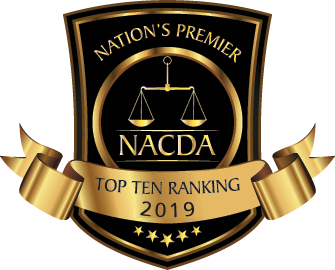An involuntary administrative separation, also known as an administrative discharge, is not something you should take lightly. Not only does an involuntary administrative separation end your military career, it can limit your access to military benefits and hurt your ability to get hired to the civilian workforce or admitted to college.
If your command seeks to separate you, it is required they notify you in writing on the basis for the separation and the recommended characterization of service. There are three characterizations of administrative separation:
- Honorable
- General Under Honorable Conditions
- Under Other than Honorable Conditions (“OTH” or “UOTHC”)
Your characterization of service is based on your conduct and duty performance while in the military.
Honorable discharges are given to service members who meet or exceed the required standards of duty performance and personal conduct during their tour or tours of duty. However, many service members who are discharged before their current tour of duty ends because they are unable to perform their assigned duties due to physical or mental reasons also receive honorable discharges. Soldiers who receive an Honorable Discharge are typically eligible for the full array of veterans’ benefits.
While a separation classified as General Under Honorable Conditions has the word “honorable” in the title, it is a far step down from an Honorable Discharge. This classification is generally given when conduct or performance of duty was less than satisfactory. Oftentimes the recipients of General Discharges have engaged in minor misconduct or have received non-judicial punishment under Article 15 of the Uniform Code of Military Justice (UCMJ). While recipients of a General Discharge are still eligible for some benefits such as VA medical and dental services, VA home loans, and burial in national cemeteries, they will not receive educational benefits under the GI Bill.
Being discharged Under Other than Honorable Conditions (“OTH” or “UOTHC”) is the worst kind of administrative separation. It is essentially one step above being court-martialed. It is often given in situations where there is evidence of violent behavior, drug use, or very unsatisfactory performance of duties. If you are discharged under OTH you lose virtually all benefits provided to members of the military, and are generally barred from enlisting into any other component of the armed forces in the future.
A non-honorable discharge can have unofficial repercussions as well. There is a stigma attached to being less than honorably discharged that can make civilian employers hesitant to hire you or make it more difficult to get accepted into some colleges or graduate schools.
If you have just received notice that you are being discharged and you disagree with the characterization of your discharge or the reasons cited for the characterization, you may be entitled to a hearing prior to discharge.
Depending on your rank or years of service, or if the recommended characterization of service is OTH, you are entitled to have your case heard by an Administrative Separation Board. This hearing is similar to a trial – evidence is presented, witnesses testify and are cross-examined, and arguments are made to the administrative board members. In addition, you can hire an attorney to argue on your behalf.
If you have already been discharged, you can often still appeal the characterization of your discharge, the reason for the discharge, and your reenlistment eligibility – sometimes even years after the fact.
If you are facing involuntary administrative discharge or separation, or are appealing a past discharge action, you are permitted to seek assistance from an attorney.





